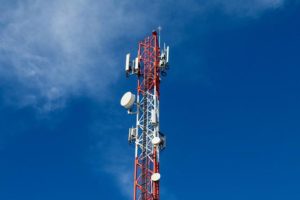 Net neutrality is basically the idea that everybody deserves a fair chance to use the internet. And broadband providers shouldn’t be allowed to limit access to some people or provide special access to others.
Net neutrality is basically the idea that everybody deserves a fair chance to use the internet. And broadband providers shouldn’t be allowed to limit access to some people or provide special access to others.
The FCC, which regulates broadband carriers in the United States, was created by the federal government in 1934. In 2005, the FCC established net neutrality protections and these rules were strengthened by the agency’s 2015 Open Internet Order, which provided strong protections to keep content flowing freely on the internet.
The overwhelming majority of Americans support the concept of net neutrality, but in 2017 FCC chairman Ajit Pai initiated a regulatory proceeding that replaced the Open Internet Order with a policy known as the Restoring Internet Freedom Order, repealing existing net neutrality laws.
In May 2019 Colorado became the fifth state to enact their own net neutrality law by prohibiting internet providers from throttling or blocking otherwise legal content, services, and apps. The law also prevents broadband companies from establishing internet “fast lanes” for their preferred customers.
With competing state, local, and federal regulations, it’s become very difficult to conduct business in the telecom industry in Colorado. But one thing is clear, it’s essential to find the right lawyer if you want to operate a telecommunications business in Colorado, or if you want to use your property for cell tower leasing.
The History of Telecom Law in America
For decades, AT&T had a monopoly on all phone service in the United States. In 1984, AT&T was broken up into seven regional phone companies known as the Baby Bells. Over time, new technology such as satellite and broadband opened up telecom service to a host of new providers.
The Telecommunication Act of 1996 is a federal law that governs communications networks. In theory, the law favors open competition between telecommunications companies, allowing anyone to start a communications business. But the law’s 10,000 pages of rules and regulations often favors large carriers who have an army of lawyers to help them manipulate the rules.
To provide a level playing field, the Telecommunication Act of 1996 protects wireless providers from state and local governments that would block wireless providers from applying for new permits or negotiating tower installations. The law requires timely and open hearings for petitioners.
The Current Legal Climate
The 2015 Open Internet Act was designed to ensure net neutrality by preventing internet service providers from speeding up or slowing down traffic based on business preferences or user demand. The act also made it so broadband companies were not allowed to charge different fees to different creators of web content.
In 2019 the Circuit Court of Appeals upheld the FCCs plan to repeal net neutrality, but it did not block states from introducing their own net neutrality legislation. Colorado responded by enacting SB19-078, which gives preference in state contracts to internet providers that maintain net neutrality.
To protect consumers, SB19-078 allows Colorado authorities to rescind state funding from companies that don’t promote free and open telecommunications. Violators would be required to repay the state from funding they received for rural broadband initiatives.
Recent congressional legislation frees up over $42 billion dollars in federal broadband funding through the U.S. Department of Commerce National Telecommunications and Information Administration (NTIA).
Funds from the NTIA’s Broadband Equity, Access, and Deployment program will be awarded to each state based on the number of locations currently unserved by broadband. Cities, counties, and states are currently working to develop plans that will make them eligible for these funds. This will have serious implications for service providers in Colorado.
Your Telecom Lawyer in Colorado
As you can see, navigating various local, state, and federal telecommunications laws can get pretty complicated. That’s why you’ll want to have the right wireless telecommunications attorney by your side.
At Welsh Law, LLC, we have extensive experience in telecom contract services, acquisitions, dispositions, zoning, and construction management.
Call (720) 836-1777 to learn more today.
